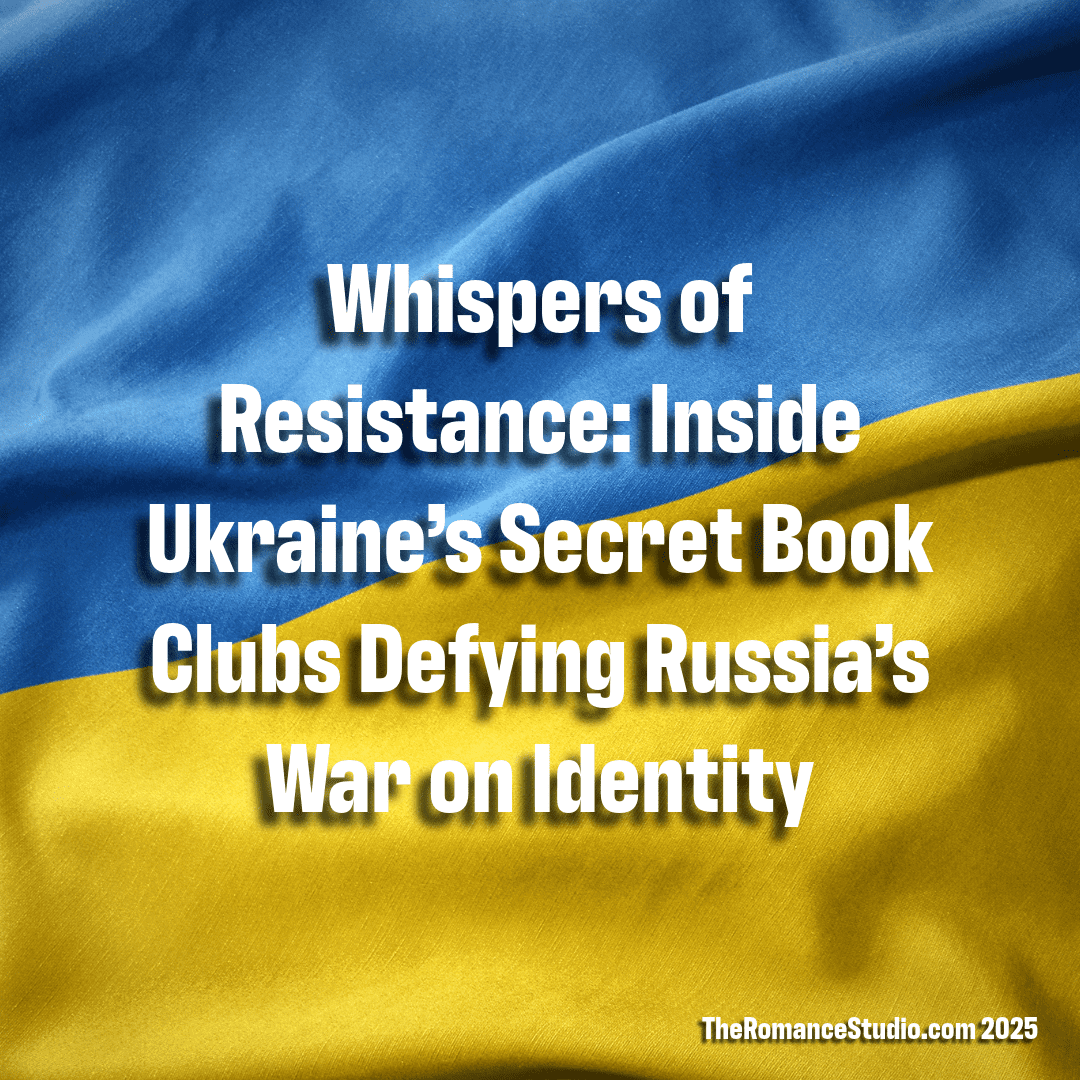Whispers of Resistance
Inside Ukraine’s Secret Book Clubs Defying Russia’s War on Identity
In a quiet flat somewhere in occupied Ukraine, a group of teenagers meets in secret according to The Guardian. There are no snacks, no name tags, no Instagram posts about the latest read. Instead, they check the doors for informants. They close the windows. They risk arrest, beatings—even prison—for reading poetry.
This is not a dystopian novel. This is the reality of Mariika (not her real name) and her underground book club—one of many formed by young Ukrainians determined to preserve their cultural identity in the face of Russia’s ongoing campaign to rewrite history.
These teens gather in groups of no more than three, not because they prefer intimate discussions, but because larger meetings raise suspicion. In their part of Ukraine—now under Russian occupation—Ukrainian textbooks are labeled “extremist.” Simply owning one could mean five years in prison. Parents risk losing custody for allowing their children to follow the Ukrainian curriculum online. Teenagers caught speaking Ukrainian have been abducted and “interrogated” in the woods.
Erasing a Nation, One Book at a Time
Since Russia’s invasion, the Kremlin’s goals have gone beyond territorial conquest. The aim, as Mariika and millions of others know, is cultural erasure. In her town alone, nearly 200,000 Ukrainian books—covering history, politics, and literature—have been confiscated or destroyed by Russian authorities.
To keep their minds and heritage alive, these teens now read Ukrainian literature through carefully hidden PDFs, deleting their search history after each session. Phones and computers are routinely checked for “extremist content.”
One of the club’s favorite writers is Lesya Ukrainka, a 19th-century feminist and literary icon who, in her own time, founded a book club in Kyiv when publishing and teaching in Ukrainian was banned. Her poetry questioned Russian imperialism and celebrated Ukraine’s struggle for independence. Over a century later, her words still resonate—especially her poignant line: “Whoever liberates themselves, shall be free.”
Putin’s “Peace” Is Cultural War
While international headlines focus on ceasefires and negotiations, Ukrainians like Mariika live in a different reality. In recent talks with Russian President Vladimir Putin, U.S. officials reportedly discussed “peace” proposals that include Ukraine recognizing Russian-occupied territories and limiting its military.
But to Ukrainians, such negotiations risk legitimizing what is more than a geopolitical occupation—it is an assault on the right to exist as a people.
In occupied schools, Russian authorities have removed all Ukrainian symbols, replacing them with portraits of Putin. The new curriculum teaches that Ukraine is merely a “younger brother” in the grand Russian family. Stalin’s atrocities, including the Holodomor, a Soviet-engineered famine that killed millions, are glossed over. History is rewritten to portray Russia as a savior, not an oppressor.
Worse, more than 19,000 Ukrainian children have been forcibly taken to Russia, many placed with families and indoctrinated to abandon their Ukrainian identity. Meanwhile, 1.5 million children still in the occupied zones are being prepped to join military youth groups—taught to hate their own culture.
The High Stakes of Silent Defiance
Despite the danger, Mariika’s book club persists—reading not just revolutionary texts, but also stories of ordinary teenage life in Ukraine: dating, school, friendship. These small acts of normalcy are radical in a world where reading the wrong book is a crime.
For Mariika and others, literature is more than escape—it’s resistance. It’s memory. It’s proof that Ukraine exists, that it matters, and that it will endure.
As global powers negotiate borders and treaties, the world must not forget the people living under occupation who are still fighting every day for their voice, their stories, and their future.
Their freedom begins with a whisper, the turn of a page—and the courage to read on.

